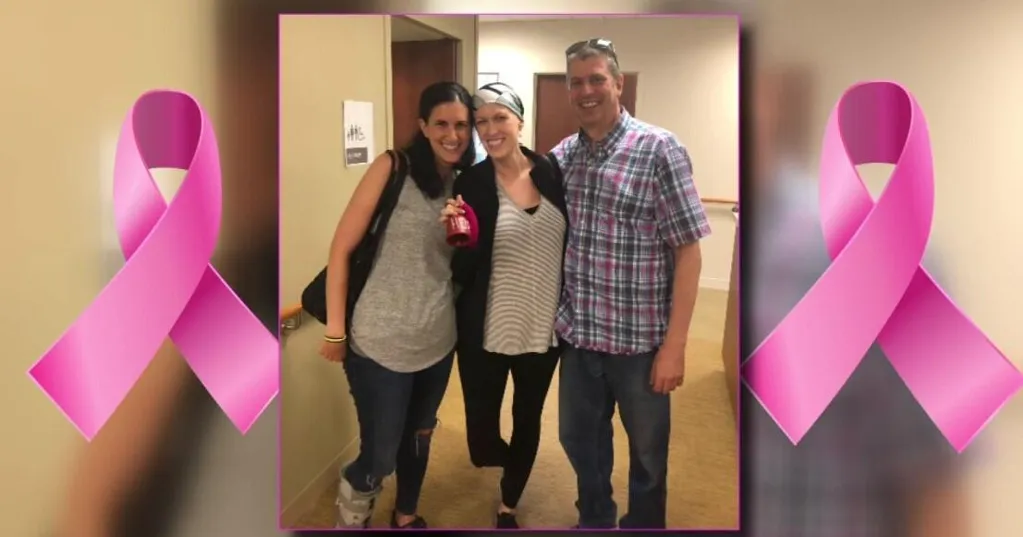Suzanne Le Mignot serves as CBS2 Chicago's weekend news morning anchor and weekday reporter.
During Breast Cancer Awareness Month, three prominent Chicago hospitals are joining forces in the fight against the disease.
Northwestern Medicine, UChicago Medicine, and RUSH MD Anderson Cancer Center have formed the Chicago Breast Cancer Research Consortium, funded by the nonprofit Lynn Sage Breast Cancer Foundation, which is responsible for groundbreaking research.
The Lynn Sage Breast Cancer Foundation invested in the early research of tamoxifen, which is now the standard of care for preventing and treating some types of breast cancer.
Now, the organization is funding clinical trials that started in July, involving two drugs. Mardi Kaplan is one of the trial's patients.
In 2017, Kaplan was diagnosed with stage 2 breast cancer.
"My original treatment was aggressive. I chose to have a bilateral mastectomy; and then I had chemo, radiation, and then I was on different types of medication, with the goal of preventing reoccurrence," she said.
In 2022, Kaplan’s cancer progressed to stage 4 metastatic breast cancer.
"When I was diagnosed, I had significant amount of cancer in my liver. It has shrunk, but I have two tumors that have remained fairly large in my liver," she said.
Her oncologist at Northwestern Medicine told Kaplan she would be a candidate for the new clinical trial being led by the Chicago Breast Cancer Research Consortium. It's a first-of-its-kind partnership between Northwestern, UChicago, and RUSH.
The clinical trial is for patients with ER+/HER2- advanced or metastatic breast cancer.
"I was excited about the trial. It was an opportunity to participate in research," Kaplan said.
The clinical trial uses the drug elacestrant in combination with another, called ribociclib. It's believed both drugs, when used in combination, can improve patient survival.
So far, the consortium's trial has enrolled about 18 patients.
Dr. Kunle Odunsi is the director of the UChicago Medicine Comprehensive Cancer Center and oversees the consortium's clinical trials.
"These three hospitals cover different areas of the city and Chicagoland, so we're going to see increased diversity. And the reason why that is important is that the more diverse the population that we enroll in our clinical trials, the more generalizable the results are going to be when it comes to real world practice," he said. "Clinical trials are not just experiments. They are designed to help with clinical outcomes of our patients, where they have better survival and better quality of life."
The Lynn Sage Breast Cancer Foundation is celebrating its 40th year. To date, the organization has raised $50 million for breast cancer research and researcher education.
Lynn's daughter, Laura Sage, is the co-founder of the nonprofit. On Oct. 16, her mother would have been 80 years old. Laura was just 13 when breast cancer claimed Lynn's life. Her sister, Halle, was 11.
"We're at a point where research, medical research, is being cut. It's more important than ever for the private sector to fill that gap. The good news is that I'm more optimistic than ever that, with funding, we can make material progress in the fight against breast cancer," Laura said.
Through the work of the consortium, the memory of Lynn Sage lives on, creating hope and with the goal of changing lives, one clinical trial at a time.
"I think it's really great. I think that having an organization that especially brings together the different hospitals to further the reach of the research is really amazing," Kaplan said.
As Kaplan continues her treatment in the clinical trial, she vows to be triumphant in her fight. She's embracing what lies ahead and savoring everything life has to offer. She got married to her husband, Andy, in 2023. She's enjoying traveling, the outdoors, and every moment she has with her family.
"Because there's no cure for metastatic breast cancer, just knowing more that lines of treatment are available, just gives me the, I guess, confidence and assurance that my life will hopefully be longer; and so research is really, really critical for that purpose,"
The goal is to have at least 175 people in this current clinical trial. The consortium has two more taking place in the near future.
